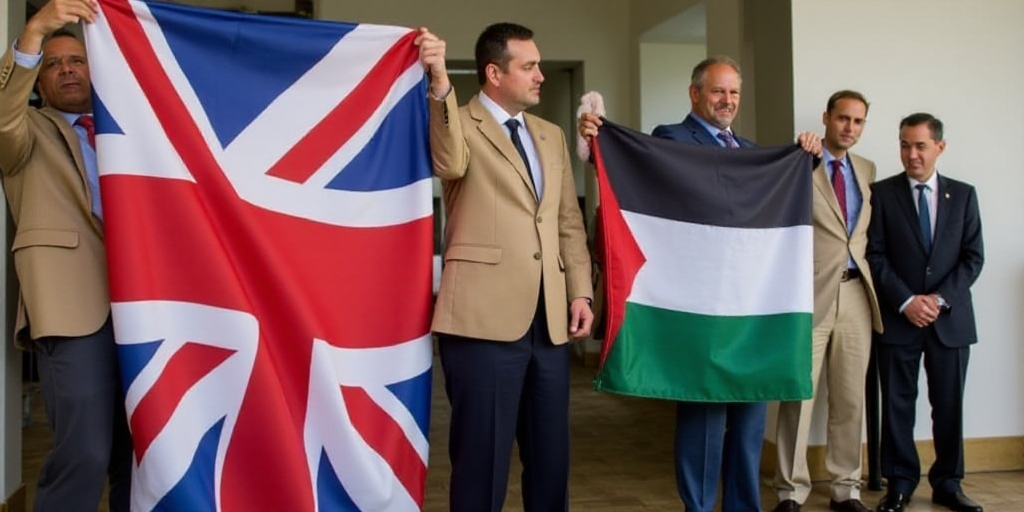Background and Context
In a significant shift in international relations, the United Kingdom, Canada, and Australia have recently recognized the Palestinian state. This move comes ahead of a jointly-led France and Saudi Arabia summit on the sidelines of the United Nations General Assembly, where the future of a two-state solution in the region will be discussed.
This decision is part of a growing trend where several traditionally pro-Israel countries have symbolically acknowledged Palestine, amidst the escalating military conflict in Gaza following Hamas’s unprecedented attacks against Israel in 2023.
Key Players and Statements
The United Kingdom, a long-standing ally of Israel, took this step on Sunday in what its Prime Minister Keir Starmer described as a “historic change” in decades-long foreign policy. The UK aims to “revive hope for peace between Palestinians and Israelis, and a two-state solution.”
Canadian Prime Minister Mark Carney also announced his country’s recognition of Palestine, pledging collaboration to build a peaceful future for both Palestine and Israel.
Australia joined the trio, with Prime Minister Anthony Albanese stating that his country acknowledges the Palestinian people’s legitimate and long-standing aspirations for a sovereign state.
Reactions and Concerns
Israeli Prime Minister Benjamin Netanyahu vowed to combat what he called “false propaganda” against his country and against calls for a Palestinian state, which he believes would threaten Israel’s existence and reward terrorism.
Portugal had previously signaled its intention to recognize Palestine, citing the “extremely concerning evolution” of the conflict, both humanitarian and regarding potential annexation of Palestinian territories.
Israel’s Security National Minister, Itamar Ben Gvir, demanded immediate actions, including “the swift application of sovereignty in Judea and Samaria,” a term referring to the West Bank, and the “complete dismantling” of the Palestinian Authority.
The UK’s Deputy Prime Minister, representing the country at the UN General Assembly, denounced the expansion of settlements in Palestinian territories, particularly the E1 project, which aims to build 3,400 housing units in the West Bank and has been criticized by the UN for potentially splitting Palestinian territory into two.
International Response and Recognition
Approximately three-quarters of the 193 UN member states recognize Palestine, proclaimed in 1988 by the Palestinian leadership in exile.
The United States, Israel’s primary ally, criticized the French-Saudi initiative to recognize Palestine. During his visit to the UK, President Donald Trump expressed opposition to the British decision alongside Prime Minister Starmer.
Key Questions and Answers
- Who recognized the Palestinian state? The United Kingdom, Canada, and Australia have recently acknowledged the Palestinian state.
- Why did these countries decide to recognize Palestine now? This decision is part of a broader trend where several traditionally pro-Israel countries have symbolically acknowledged Palestine amidst the escalating military conflict in Gaza following Hamas’s attacks against Israel in 2023.
- How did Israel react to this recognition? Israeli Prime Minister Benjamin Netanyahu vowed to combat what he called “false propaganda” against his country and against calls for a Palestinian state, which he believes would threaten Israel’s existence and reward terrorism.
- What is the significance of this recognition? Around 160 UN member states already recognize Palestine, but this recent move by the UK, Canada, and Australia could potentially influence other countries to follow suit, thereby increasing international pressure on Israel to negotiate a two-state solution.






